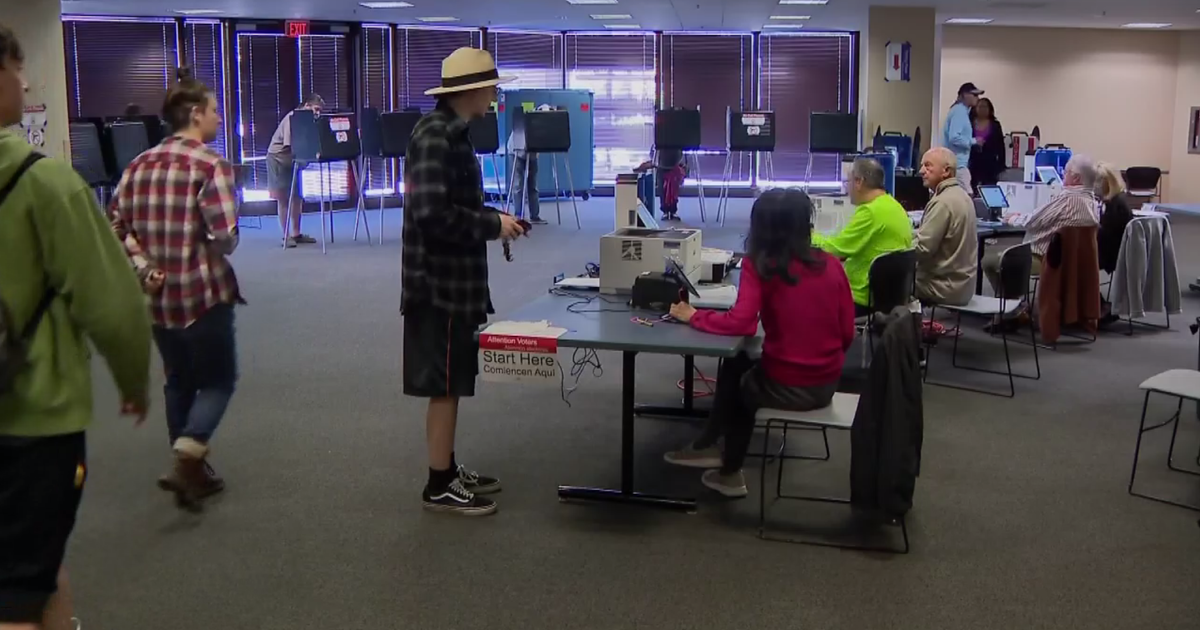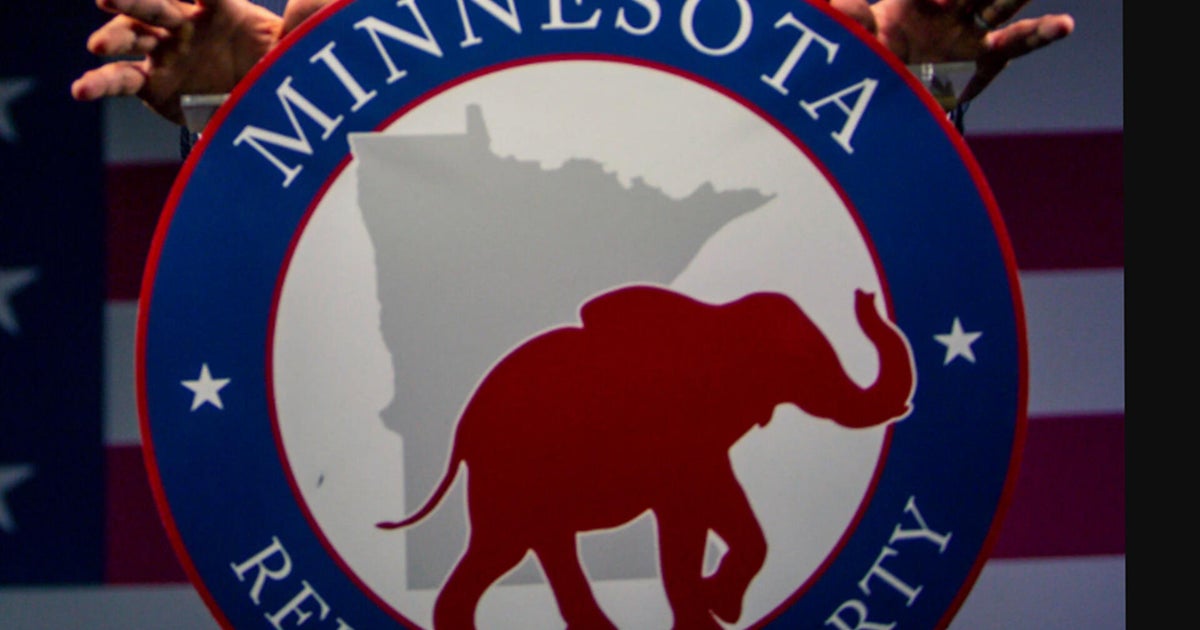"I don't think it's going to be a quiet year": State legislatures keep pushing to change voting laws after 2020 election
There was no evidence found of widespread voter fraud that would have changed the outcome of the 2020 election. But as state legislatures began their sessions in the weeks following the January 6 attack on the Capitol, many state lawmakers rushed to alter their voting laws.
According to the progressive Brennan Center for Justice, at least 19 states passed 34 laws in 2021 that add restrictions to voting procedures.
The Brennan Center has identified 88 restrictive bills across nine states that are carrying over into the 2022 session. As of December 7, at least 13 bills that add restrictions were filed ahead of legislative sessions in four states.
Many of those bills target mail voting. That includes shortening the timeframe for applying for a mail ballot, banning sending unsolicited mail ballot applications and adding restrictions on the assistance voters can receive.
Changes to voting laws enacted in 2021
Shortened window to apply for mail ballot: Alabama, Arkansas, Georgia, Iowa, Kentucky, New York, Oklahoma
Harder to remain on absentee or early voting list: Arizona, Florida
Restrictions on sending unsolicited mail ballot applications: Georgia, Iowa, Texas
New ID requirements: Arkansas, Florida, Georgia, Montana, New Hampshire, Texas, Wyoming
Reduce or limit polling place locations or hours: Iowa, Montana, Texas
Republican proponents say the changes would make it "harder to cheat." The net result, election experts say, could make it harder for some voters to cast their ballot.
"Because (the 2020 election) was so fraught with this myth of voter fraud, we saw a lot of lawmakers rushing to pass restrictive voting bills on the pretext of preventing voter fraud and preserving election integrity," said Jasleen Singh, a counsel in the Democracy Program at the Brennan Center.
President Joe Biden is going to Atlanta on Tuesday to deliver a speech about voting rights. Georgia had one of the most contentious fights over voting laws passed in 2021, along with Florida, Iowa and Texas.
A year after January 6, a new CBS News poll found that 66% of Republicans still believe that the election had widespread fraud or irregularities, though there has been no evidence to support that assertion.
A bill filed by Georgia GOP Senate President Pro Tempore Butch Miler, who is running for lietutenant governor, would ban absentee ballot drop boxes. Georgia lawmakers last year passed capping drop boxes at one box per 100,000 registered voters or matching the number of early voting sites, whichever is less. The Atlanta Journal-Constitution and Georgia Public Broadcasting found that voters in Democratic counties were more likely to return ballots at drop boxes.
Florida Governor Ron DeSantis — who last year called Florida's 2020 election "the smoothest, most successful election of any state in the country" — is pushing lawmakers to create a law enforcement division to investigate allegations of voter fraud, require more security at drop boxes, and make ballot harvesting – when third-party groups collect mail ballots – a third degree felony.
Missouri's secretary of state wants to add photo ID requirements for in-person voting. Lawmakers have several bills ready to go that are related to voter ID. A bill filed in Arizona would require voters to show proof of citizenship to cast a ballot in federal elections.
In Michigan, where Democratic Governor Gretchen Whitmer has blocked Republican efforts to add new ID requirements, a petition drive is under way to potentially circumvent her veto pen.
The proposal would change a provision that allows voters to sign an affidavit if they don't have an ID when voting in person, add ID requirements for absentee voting and ban officials from sending unsolicited absentee ballot requests. If supporters can get about 340,000 signatures – just 8% of the total voters from the 2018 gubernatorial election – the measure would go to the GOP-controlled legislature for a vote and will not need Whitmer's signature.
Jason Snead, executive director of the conservative Honest Elections Project, cheered changes like requiring identification information on absentee ballots, increasing regulations on drop boxes and banning third parties from returning mass quantities of ballots. He wants to see a "routine" develop where lawmakers are constantly looking at ways to assess what might need fixing from a previous election cycle.
"There are a lot of changes that have yet to be made in states, and certainly even those that made big changes (last) year haven't fixed every problem," Snead said. "I'm very curious to see how 2022 shapes up, but I don't think it's going to be a quiet year for election integrity."
In addition to laws relating to voter access, there are bills already filed in at least three states — Florida, South Carolina and New Hampshire — that would launch reviews of the 2020 election. A state Senate GOP-led review of Maricopa County, Arizona's 2020 election was widely discredited by election experts and actually widened President Biden's margin of victory. Republicans in Wisconsin and Pennsylvania also launched reviews of the 2020 presidential election last year.
"We're cognizant of some states where these audits have happened, these partisan reviews have happened, have turned up really no evidence of election fraud, but nevertheless are being used to sort of push for other restrictive legislation," Singh said.
Expanding access to the ballot
Some states in 2021 expanded access to the ballot, including increasing early voting opportunities, making voter registration easier and restoring voting rights to people with past convictions.
Senate Majority Leader Chuck Schumer said that his party would renew an effort to pass voting rights legislation this month, including a bill that would set national standards for some voting laws that have been targeted at the state level. He told colleagues that that could include debating and changing the chamber's rules to pass the stalled bills, but West Virginia Democratic Senator Joe Manchin has signaled that he hesitates to support those changes.
"For us to go it alone, no matter what side does, it ends up coming back at you pretty hard," Manchin said last week.
Democrats have not been able to convince any Republicans in Congress to support their election proposals. The GOP has decried the bills as an effort to nationalize elections.
That gridlock might have been preventable if Democrats had worked to court Republican support following the January 6 attack rather than asking Republicans to sign on to their bills, said Edward Foley, the director or Election Law at the Ohio State University.
"The Democrats tried to nationalize their preferred set of voting rules with HR1 and just completely polarized this debate and claimed that everything they didn't agree with was voter suppression," Foley said.
Foley said that since January 6, he has become increasingly concerned about the state of American democracy. He worries about potential violence at polling sites and fears there will be fighting over outcomes in 2022 and 2024.
In 2021, Kentucky's GOP-dominated legislature and Democratic governor came together to compromise on an election bill. It expanded access to early voting, created an online portal for requesting ballots and allows counties to set up vote centers. It also did not extend no-excuse absentee voting that was in place during the 2020 election.
The bipartisan cooperation was hailed by some election experts as an example of creating trust in the system. Foley did not mention Kentucky's example, but said legislation needs to create trust among both parties.
"We've got to be able to figure out how to regain bipartisan trust in the system," Foley said. "One party by itself cannot save democracy."



